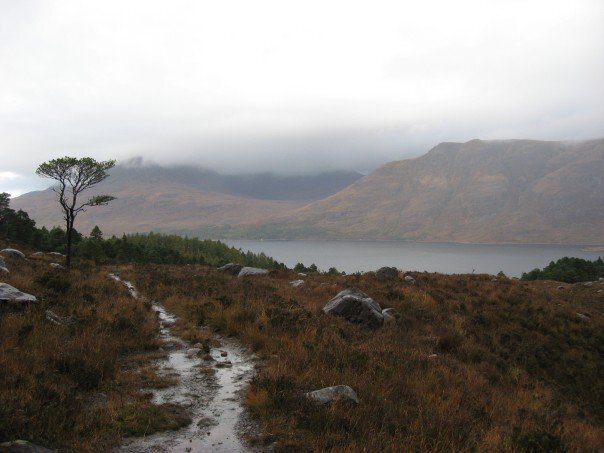In splendid isolation – the Loch Hotel
/By Kenn Taylor:
Just how far out can you go in mainland Britain in terms of isolation? With a journey many miles down a long, empty, country road, an owl flying low at the windscreen at one point, and a long, single track road before you reach the destination, this place certainly felt like a candidate.
At the end of that private road there’s a luxury hotel. Not for the likes of you and me. I am here not as a real guest, but because a friend had bagged a job there.
Adjacent to a mighty loch, it is as rural a Scotland as you could possibly imagine. Scenery flowing off into the endless distance. Dramatic landscapes in every corner of your vision: mountains, forests, streams filled with huge glacial rocks. Orange highland cows. Even the multi-coloured moss seems dramatic.
In isolation, in a vast landscape, things seem to have greater visual power. A strikingly white solitary house. A lone, worn-out boat. A fallen tree. At this altitude, and with few buildings, the slightest change of light or shift in the clouds that touch the mountain tops is instantly noticeable.
The hotel itself offers luxury in such seclusion. Old red leather chairs, worn but in the way that loos classy, not knackered. A roaring fire in a grate, the size of a small car, surrounded by dark wood and polished brass. A table lamp in the shape of a stag. The hotel itself looks ancient, but in reality is a fake. A Walter Scott image from the Victorian era.
What’s it like to live out here? I fear that the quiet and lack of stimulation would drive me mad. But there is plenty to do. Walk. Swim. Climb. Build. Read. There’s television and the internet but even then, my friend tells me, you do feel distant from everything. Terrible things happening on the news feel like dark fairy stories from far off lands, rather than things that will reach you here.
This has an allure, like some Arcadian fantasy of times past perhaps. But then this place is predicated on selling that. Charging an astronomical amount for the experience of ‘proper Scotland’. The staff, while they may also appreciate the fresh air and idyllic location, have to labour most of the time while those paying to be here can just enjoy it all. Hike the hills, fly in helicopters, drive fast cars, drink expensive whiskeys. Though labouring here is, my friend assures me, much better than some of the other places we had both laboured.
Of course, we can’t afford to even eat in the hotel. Instead we go over to the nearby inn for a pint, before driving the long way back to the nearest town to truly catch up. Nevertheless, I can see the attraction of this place, of going out to the furthest reaches. If you really have the money, you can pretend the world is not like it is. And forget, perhaps, the role you played in making it that way.
***
Kenn Taylor is a writer and arts producer. He was born in Birkenhead and has lived and worked in Liverpool, London, Bradford, Hull and Leeds. His work has appeared in a range of outlets from The Guardian and CityMetric to The Crazy Oik and Liverpool University Press. Kenn’s website.



